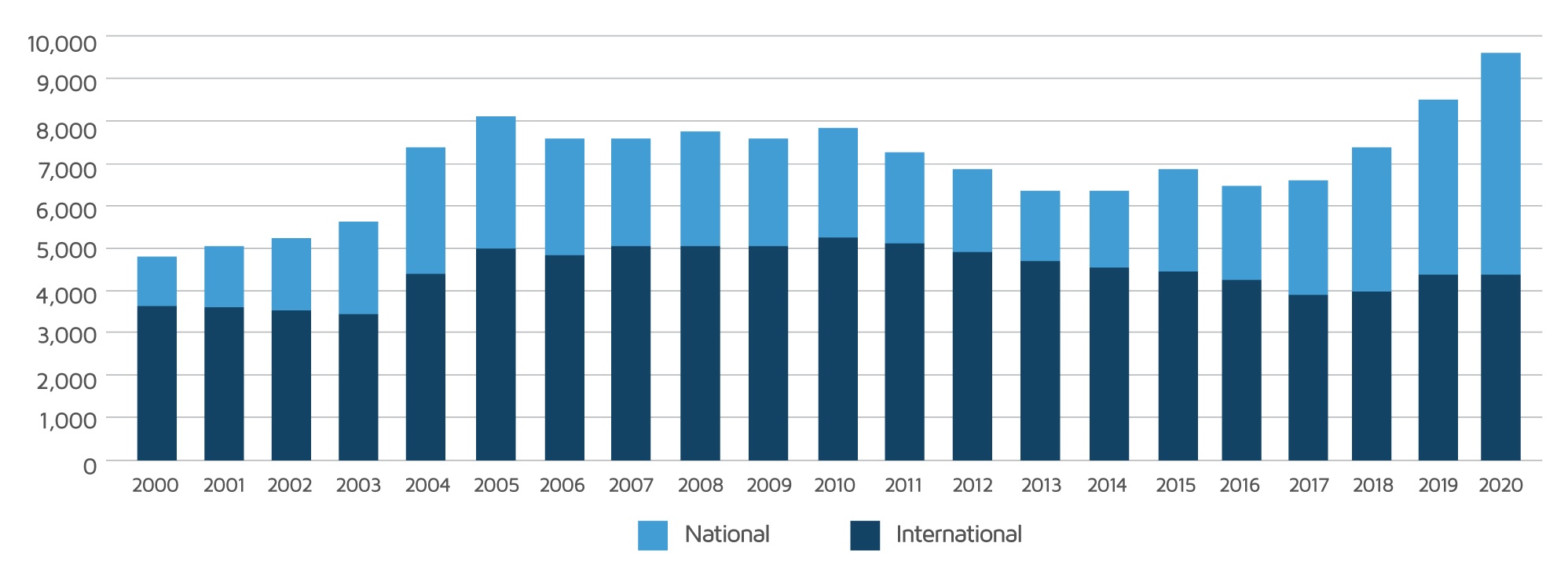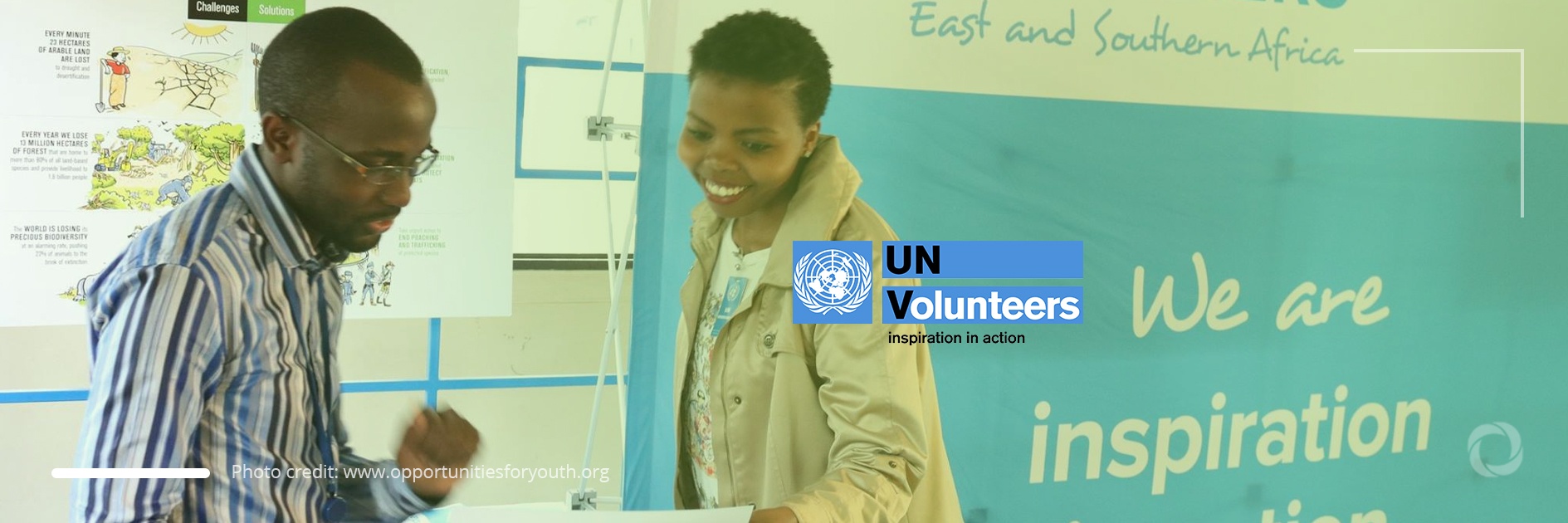United Nations Volunteers (UNV), responding to the challenges brought about by the novel coronavirus pandemic, mobilized over 1,000 volunteers in 105 countries to work with 26 agencies on COVID-related tasks in 2020. The UNV Annual Report 2020 reveals that the organization allocated US$2 million from its Special Voluntary Fund to enable quick response and mobilization for pandemic-related assignments. Overall, UN entities accommodated almost 9,500 volunteers during the last year, spending almost US$240 million.
UN Volunteers, both at the forefront and online, assisted multiple communities across the globe to confront the impacts of the pandemic. The “Volunteering During a Global Crisis” report notes that of the UNV volunteers who were mobilized for coronavirus-related tasks in 2020, 85% were national volunteers (i.e., volunteers originating from a certain country and operating within that country) with 54% from the total pool of volunteers being women. Due to travel restrictions and lockdowns, virtual (online) volunteering positions registered an increase with United Nations units requesting a total of 1,240 online assignments. Out of 1,240 tasks, 320 focused on COVID-19-related issues.
Regardless of the difficulties caused by the pandemic, UNV provided access to learning and professional growth opportunities for its volunteers. For instance, the agency implemented virtual assignment preparation training for its youth volunteers.
In terms of regional statistics, UNV said it had assisted over 736,000 people via awareness campaigns, the supply of masks, and the delivery of soap and handwashing amenities across thirteen Western and Central Africa countries. In Asia and the Pacific, to address COVID-19 associated consequences, 15 United Nations units implemented or repurposed 242 UN Volunteer tasks. In the Arab States, volunteers assisted the World Health Organization’s epidemiological workforce to prepare refugees in Sudan for the onset of the pandemic. In Yemen, volunteers delivered logistical support to accommodate humanitarian aid and in Morocco enabled society to counter the uneven gender impact of COVID-19. In Uzbekistan, 2,000 public health volunteers, educated by UNV through a dedicated program, reached out to 200,000 people, improving public awareness on health issues and providing psychological assistance.
Toily Kurbanov, UNV Executive Coordinator, noted in the report: “Because of the global pandemic, in 2020, I met fewer UN Volunteers than before. Yet, in 2020, I was most inspired by them and their critical role for the UN and in communities around the world. ”
Overall, facts and figures from the UNV report show that UN entities accommodated 9,459 volunteers from over 100 different fields of knowledge and professions in 2020. The geography of volunteering spread across 158 countries of assignments, serving with 60 United Nations partners globally. Volunteers originated from 168 countries with 56% being national UN Volunteers and 84% being from the Global South. Nearly 4,700 volunteers (50% of the total number) were from sub-Saharan Africa. One-third of all volunteers were younger than 29 years old and more than 50% were women.
In 2020, UNV handled 68,173 online volunteering applications.
Fig.1. UN Volunteers by region
Overall, the proportion of national to international UN Volunteers expanded from 48% in 2019 to 56% in 2020.
Fig.2. UN Volunteers, National International 2000–2020

The UNV budget exceeded US$235 million with over US$9 million originating from UNV institutional resources, over US$22.5 million from the Special Voluntary Fund as well as from cost-sharing and trust funds and US$205 million came from the resources of United Nations entities.
Fig.3. Financial volume spent by region

